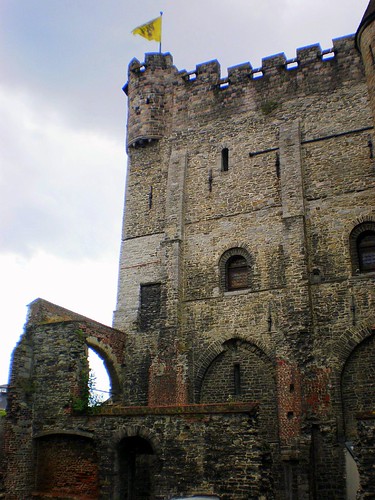'Cosmic Patriots' for Christ
Posted by Andrew Haines in Book Reviews, Saints, Theology on 11.15.2008
There is something funny about trying to be pertinent to today's world. On the one hand, you have the news: chock full of sad stories, cynicism, despair and harsh, cold 'reality.' On the other hand, you have fluff (or at least what the world and most people consider fluff): optimism, talk about how good life really is under all the harshness, etc. Neither is really appealing—at least to me. Sometimes I like to hear about the news, but a little goes a long way. Sometimes I need a pick-me-up, and a nice story with a good ending makes me feel better. But again, less is more as far as that goes.
What do people really want? False pessimism is bad; false optimism is perhaps even worse. Is it really possible to fall somewhere in between? Even more importantly, what are we called to see, as Christians, in a world that is at times unbearable and at times all too enticing? G.K. Chesterton, in his wonderful book, Orthodoxy, writes of this proper Christian approach to life: he likens it to patriotism.
G.K. Chesterton, in his wonderful book, Orthodoxy, writes of this proper Christian approach to life: he likens it to patriotism.
My acceptance of the universe is not optimism, it is more like patriotism. It is a matter of primary loyalty. The world is not a lodging-house at Brighton, which we are to leave because it is miserable. It is the fortress of our family, with the flag flying on the turret, and the more miserable it is the less we should leave it. The point is not that this world is too sad to love or too glad not to love; the point is that when you do love a thing, its gladness is a reason for loving it, and its sadness a reason for loving it more. All optimistic thoughts about England and all pessimistic thoughts about her are alike reasons for the English patriot. Similarly, optimism and pessimism are alike arguments for the cosmic patriot.
That final term—"cosmic patriotism"—is certainly a Chesterton special. In his typical way, he captures all the facets of a very multifaceted reality in a single, poignant phrase. We all know what a patriot is (or at least what one used to be, when the word meant something a little stronger). I assume that "cosmic" is an equally familiar term, although again one with a little baggage in contemporary society. When put together, though, Chesterton's "cosmic patriotism" makes perfect sense; it resonates in the heart of modern man. We must be devoted citizens and lovers of the universe we live in. The more miserable it is, as he says, the less we should want to leave it.
Chesterton had a keen eye for what made certain things resplendent with Christian beauty. Certainly, the cosmos is one of those things: ordered by the Logos and permeated by the logoi spermatikoi, it is the handiwork of God and the manifestation of his glory. Saint Irenaeus added to St. Justin Martyr's thought with the wise insight that Gloria Dei vivens homo ("The glory of God is a living man"). What is often forgotten of Irenaeus' statement, however, is the second part of the sentence: gloria autem hominis visio Dei ("The glory of man is the vision of God"). It is this vision of God in his creative majesty that Chesterton speaks to. It is to the divinely made universe, of which we are all beloved citizens, to which we are in turn called to be patriots. No matter how bad it sometimes seems, and no matter how enticing it can sometimes be, it is nothing other than God's love made known to us. "It is the fortress of our family, with the flag flying on the turret, and the more miserable it is the less we should leave it."
This entry was posted on 11.15.2008 at 12:12 PM and is filed under Book Reviews, Saints, Theology. You can follow any responses to this entry through the RSS 2.0. You can leave a response.



# by Anonymous - August 18, 2009 at 5:42 AM
To find an axample of a Patriot for Christ---Research-- The Writtings of Isaac Pennington--- in England and then research how they came about, and where they are today.You may find some simple truths there.
Post a Comment